Local
Top 10 local news stories of 2022
Casa Ruby shuts down, As You Are opens
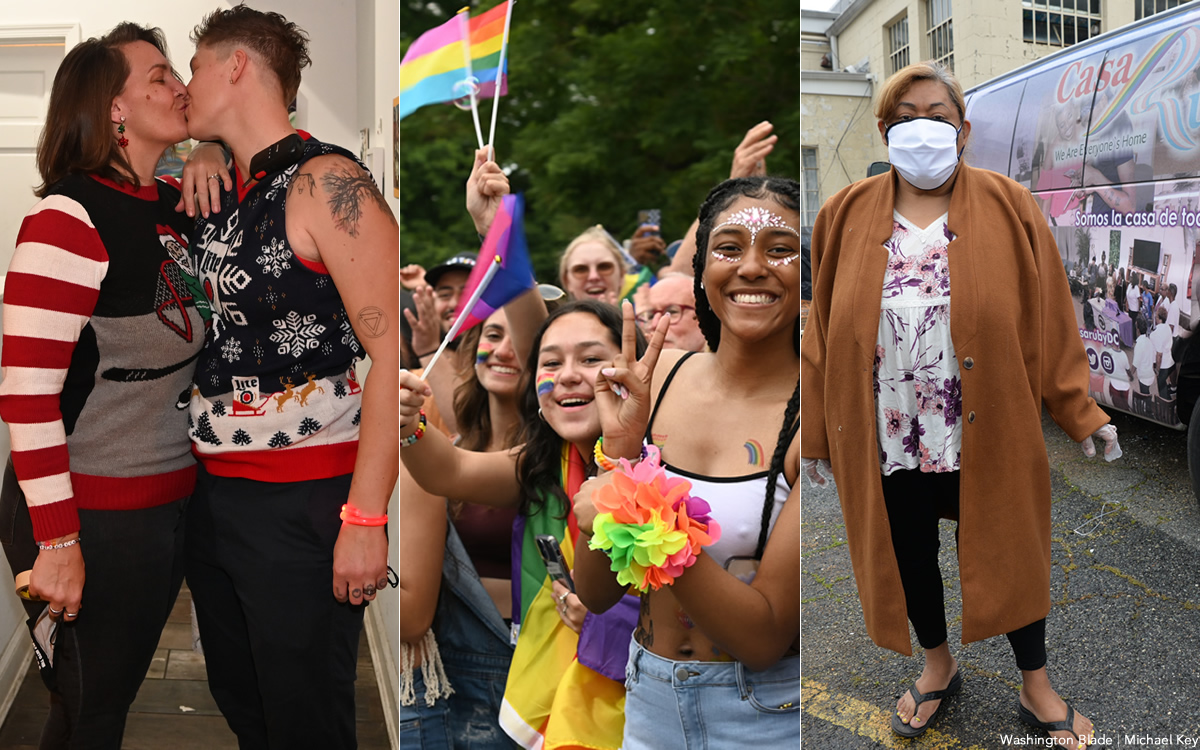
From the return of Pride to the shutdown of Casa Ruby, the Blade was busy in 2022 covering all the local LGBTQ news. Here are our staff picks for the top 10 stories of the year.
#10 As You Are bar overcomes hurdles to open
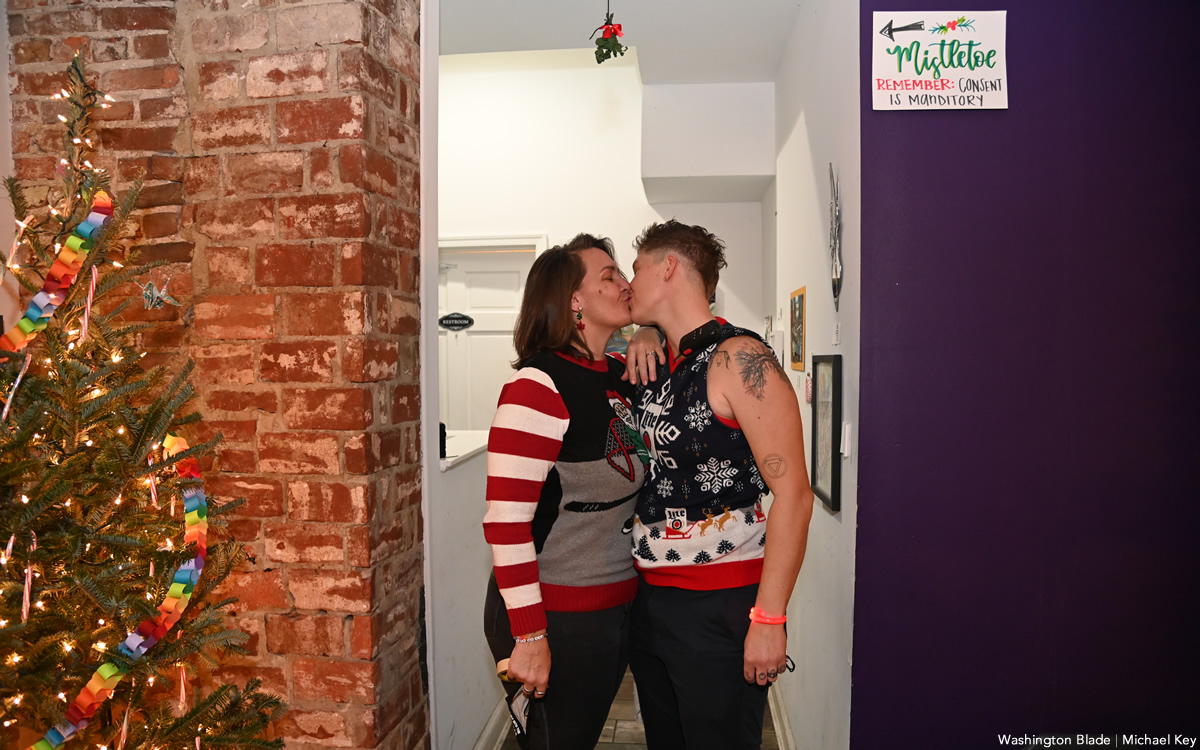
Plans of lesbian activists and businesswomen Jo McDaniel and Rachel Pike to open the LGBTQ café and bar of their dreams called As You Are in the Barracks Row section of Capitol Hill appeared uncertain at best in January 2022.
Some nearby residents raised objections to what they said would bring noise and neighborhood disturbances by plans for a second-floor dance floor at the bar’s 500 8th St., S.E. location. But as it turned out, many residents expressed support for the bar.
McDaniel and Pike, with help from their attorney, worked out an agreement with the local Advisory Neighborhood Commission, which gave its support for the bar’s liquor license application that was later approved by the city’s liquor board.
Although McDaniel and Pike say they still have some hurdles to overcome, the bar opened for business on March 22. Among the several dozen people who showed up on opening day were gay U.S. Department of Transportation Secretary Pete Buttigieg and his husband.
#9 Gay Hyattsville mayor posthumously charged with embezzlement
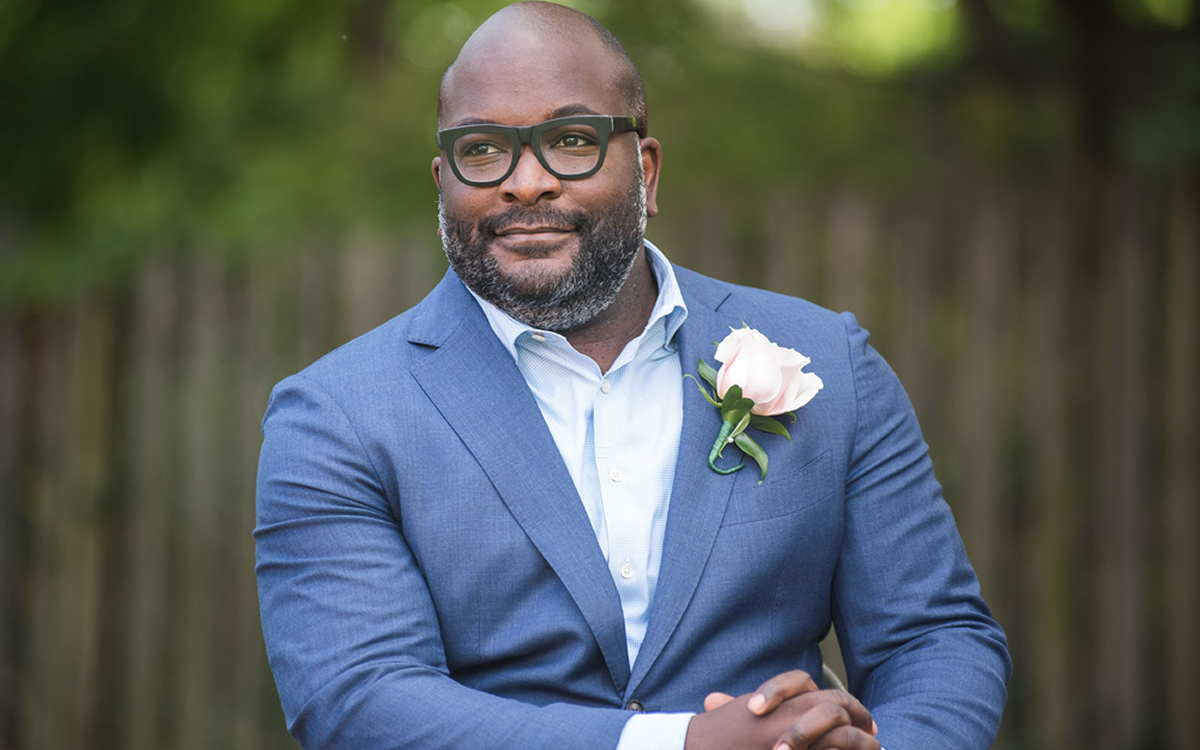
Gay Hyattsville, Md., Mayor Kevin Ward, who took his own life on Jan. 25, was posthumously charged a few months later with embezzling more than $2.2 million from a D.C. charter school network where he worked as director of technology.
The revelations shocked LGBTQ supporters and Hyattsville city officials, who had praised Ward as a progressive and highly regarded public official who worked for the betterment of all of Hyattsville’s diverse residents.
U.S. Park Police said they found Ward deceased in a federal park in Northern Virginia from what authorities said was a self-inflicted gunshot wound.
News of the alleged embezzlement surfaced when federal prosecutors filed a civil forfeiture complaint against Ward’s estate charging, among other things, that he used the money he stole to buy at least 10 cars, a camper, sports memorabilia, and property in West Virginia.
#8 Loudoun County sexual assault case triggers opposition to trans policies
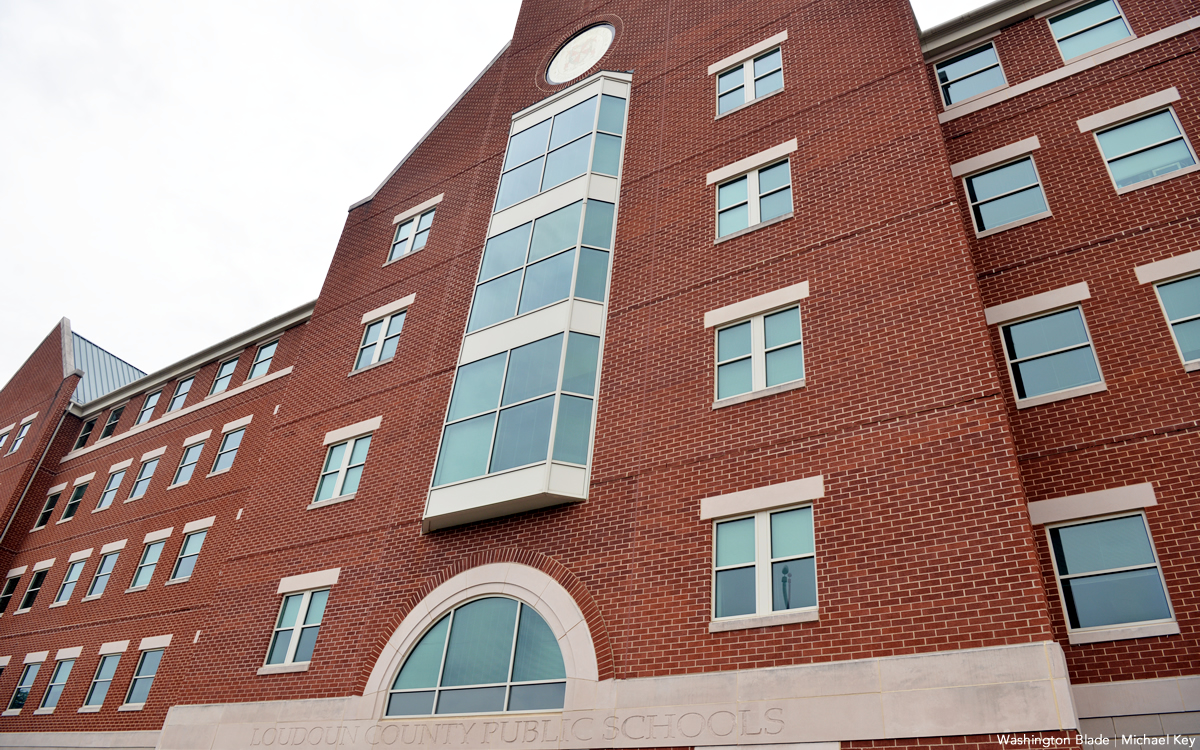
Transgender supportive public-school policies adopted in Loudoun County, Va., and throughout the state and beyond continued to face intense opposition in 2022 from a 2021 incident in which a 15-year-old boy initially believed to be transgender or gender fluid was charged with sexually assaulting two girls in separate high schools. One of the two assaults took place in a girl’s bathroom while he wore a skirt.
Although the boy’s mother has said her child is not transgender and identifies as straight, critics seized on the two sexual assault cases as grounds for reversing or opposing school policies that allow transgender students to use the bathrooms and other school facilities that match their gender identity.
In a separate development, the Loudoun County school board, which previously had adopted trans-supportive school policies, voted to uphold a decision by the school superintendent to remove the LGBTQ book ‘Gender Queer: A Memoir’ from high school libraries.
#7 Monkeypox hits D.C. gay, bi men
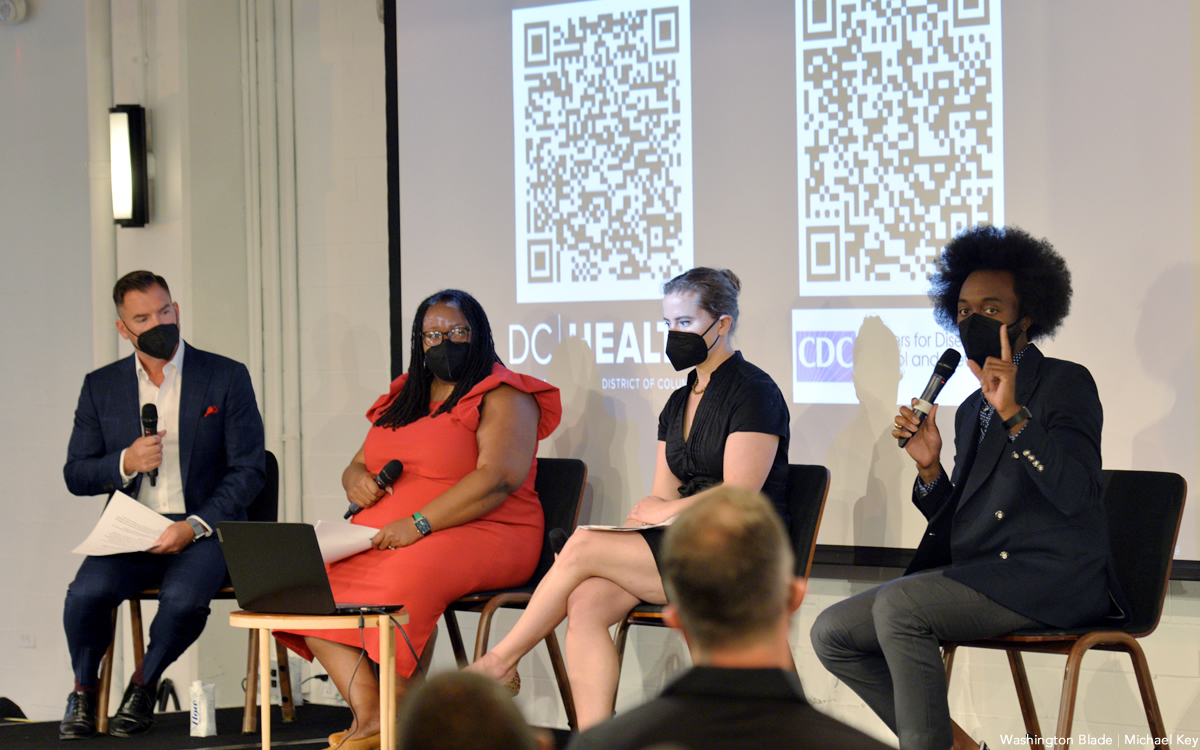
Officials with the D.C. Department of Health reported in July that gay and bisexual men and those in the category of men who have sex with men (MSM) appeared to comprise at least 90 percent of the reported monkeypox cases in Washington, D.C.
But that percentage declined a short time later when the DOE changed its reporting policies in an effort to reduce the stigma associated with monkeypox infections. Officials said they did not want to appear as if they were applying undue pressure on people to disclose their sexual orientation when they apply for a monkeypox vaccination or seek a monkeypox test or treatment.
That change in policy appeared to result in a lower number of newly reported cases being attributed to men who have sex with men and a higher number of cases attributed to an “unknown” risk group.
In late summer, some public health officials said the lead cause of monkeypox transmission appeared to be through sexual relations rather than casual contact such as from dancing.
#6 Ally Wes Moore wins election as Maryland governor
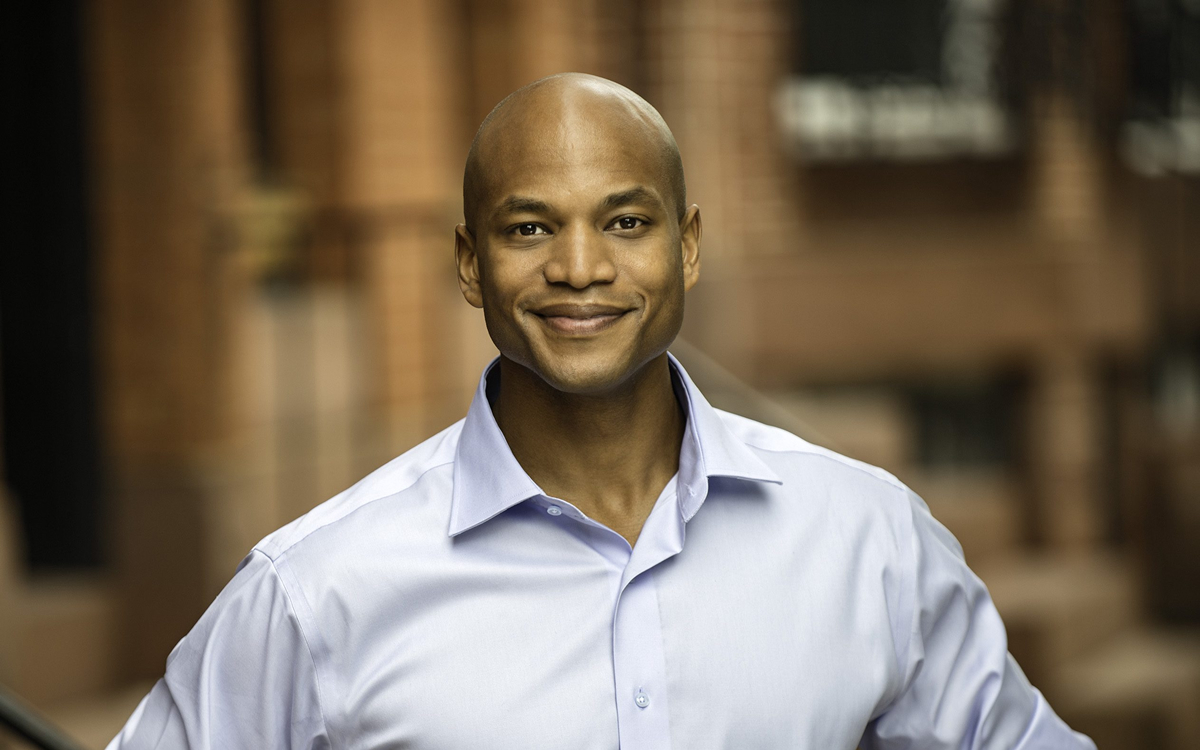
Maryland Democrat Wes Moore, an outspoken supporter of LGBTQ rights, won election in November as Maryland’s first African-American governor. In other LGBTQ related races, lesbian former Maryland state Del. Heather Mizeur lost her race for a U.S. House seat in the state’s Eastern Shore district.
In Delaware, transgender woman Sarah McBride won re-election to her seat in the State Senate. And in Virginia, transgender State Del. Danica Roem announced she will run for a seat in the Virginia Senate in 2023.
#5 Gay former D.C. cop Brett Parson arrested on sex with minor charge
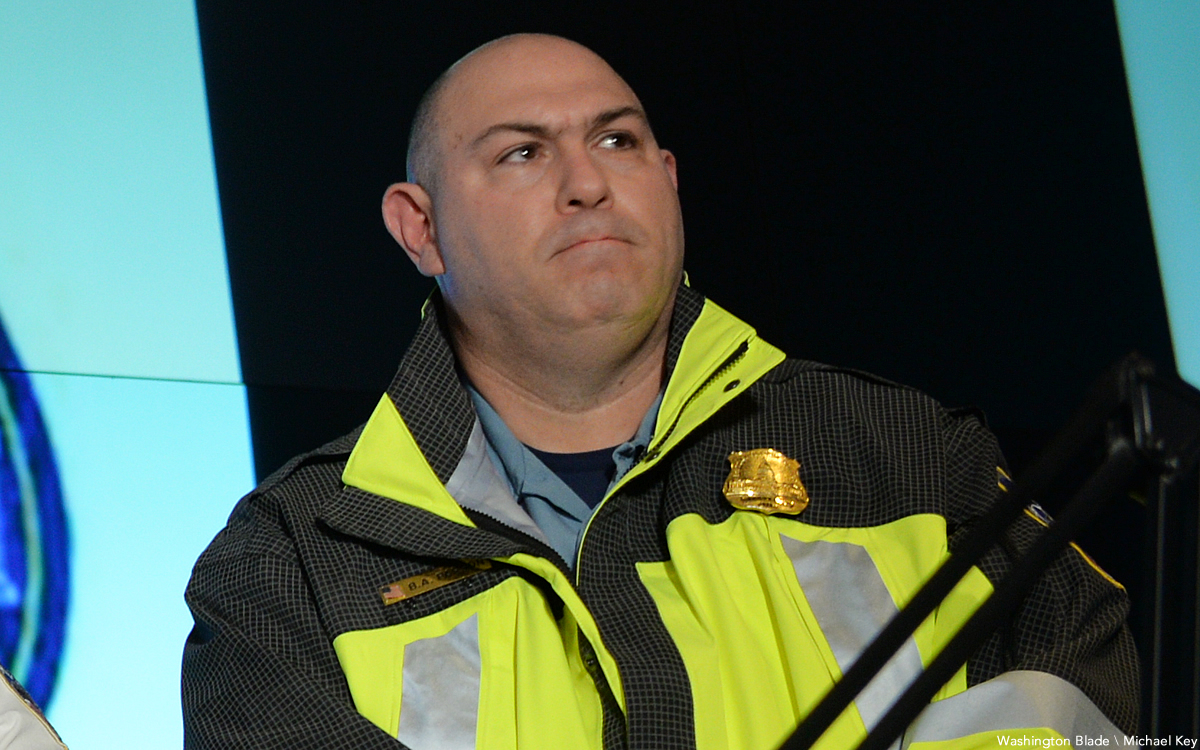
Former D.C. police lieutenant Brett Parson, who served as supervisor of the department’s LGBT Liaison Unit before retiring from the force in 2020, was arrested in Boca Raton, Fla., on Feb. 12, for allegedly having sex with a consenting 16-year-old boy in violation of Florida’s age of consent law, which is 18, according to an arrest affidavit filed in court.
The affidavit says the 16-year-old told police he and Parson met on the gay online dating app called Growlr and agreed to meet for a sexual encounter in Coconut Creek after exchanging “explicit” photos of each other. It says the two engaged in consenting sex in Parson’s car while parked in a secluded parking lot at night.
An arrest warrant obtained by Coconut Creek police charges Parson with two counts of “Unlawful Sexual Activity with a Minor.” Parson was released on bond while awaiting trial. Court records show no trial date has been set and the next court status hearing for the case is scheduled for March 17, 2023.
#4 Youngkin creates uproar over proposed trans school policy
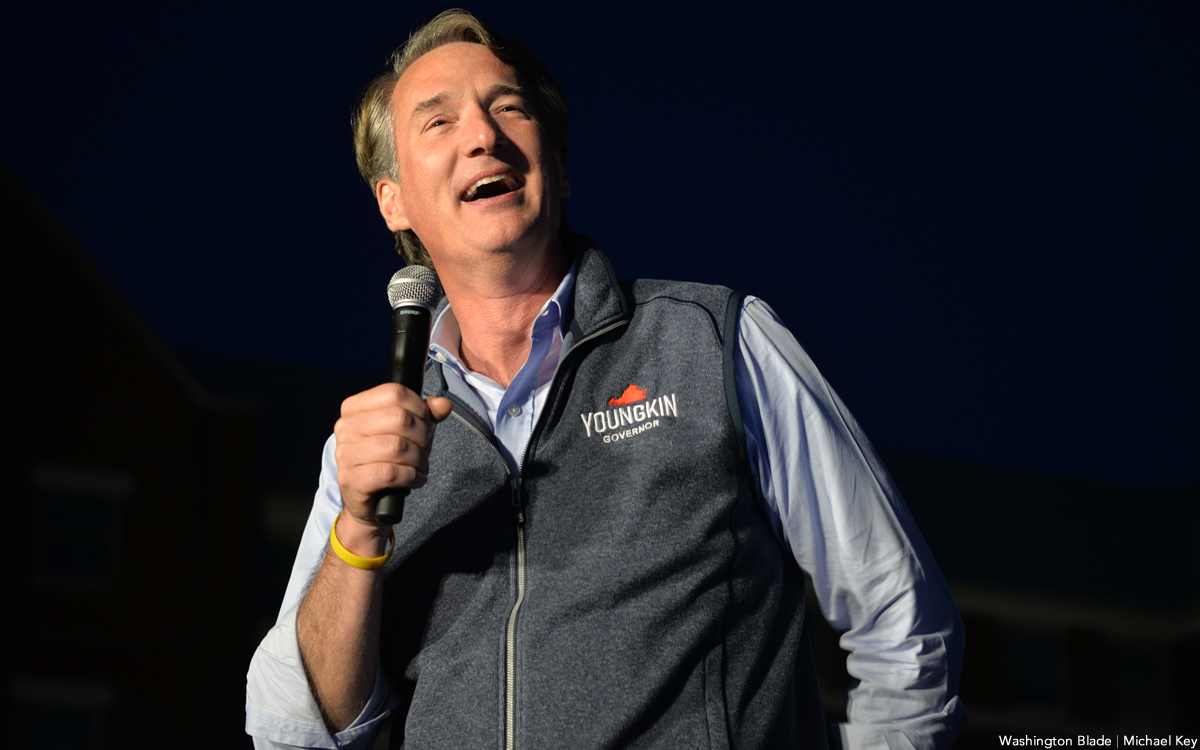
Republican Gov. Glenn Youngkin of Virginia introduced a proposed directive in September requiring all the state’s 133 public school districts to adopt transgender “model policies” that, among other things, would require transgender students to use school facilities such as bathrooms and locker rooms that match their gender at birth.
The proposed policies, which drew strong opposition from LGBTQ rights advocates, also would require students who want to change their name or gender on official school records to obtain legal documentation, such as a legal name change, with parental approval. Additionally, the Youngkin policies would call for teachers and other school employees to refuse to refer to trans students by their desired name or pronoun unless students’ parents request that change in writing.
Although the proposal received mixed reactions from the public through about 71,000 written comments during a 30-day review period, the state Department of Education postponed the policy directive’s implementation for more than a month following legal issues raised by opponents. Among the issues raised is that the policies would violate Virginia’s LGBTQ nondiscrimination law.
#3 Large-scale D.C. Pride events resume
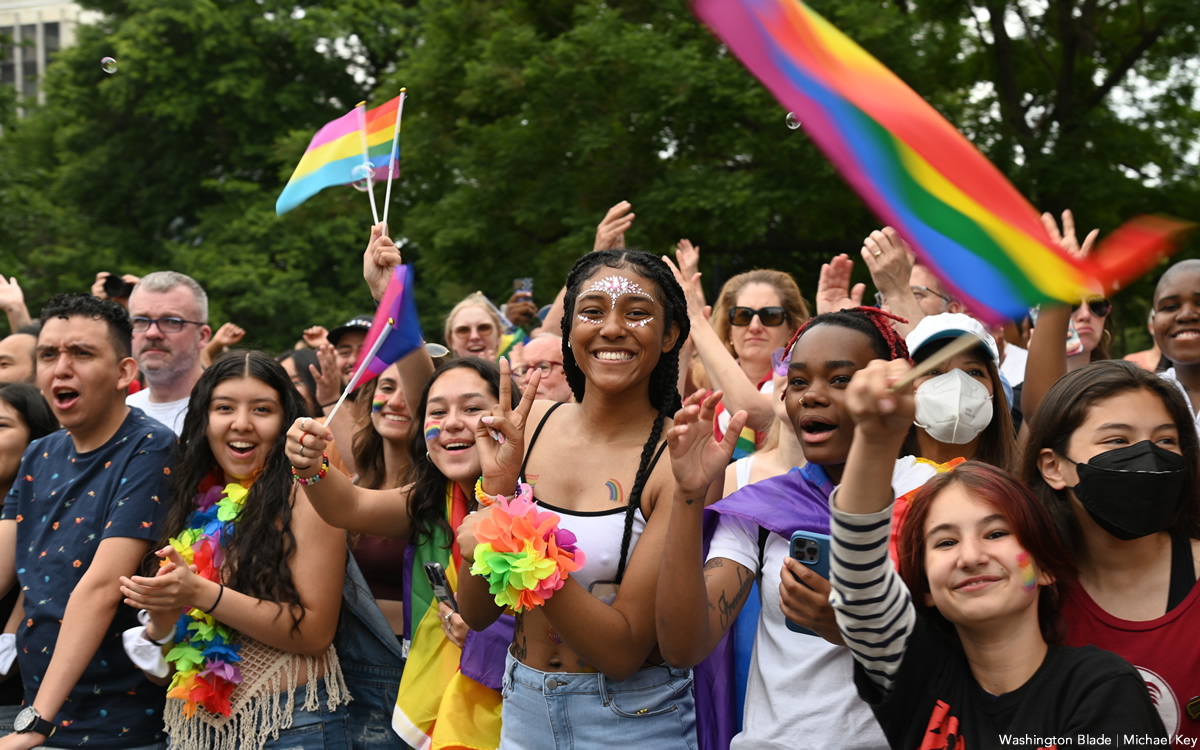
Organizers of D.C.’s 2022 Capital Pride Parade and Festival say the two events attracted close to a record half-million people during the city’s Pride weekend in June when large-scale outdoor and indoor Pride events resumed following the scaled-back events in 2020 and 2021 due to the COVID pandemic.
Organizers of the city’s Black Pride events, which take place each year during the Memorial Day weekend in May, said large-scale indoor celebrations, including conference sessions and dance parties, resumed in full force as well in 2022. The Blade’s annual Pride on the Pier celebration at the Wharf also returned to packed crowds.
Among those who joined the Capital Pride celebration was U.S. Vice President Kamala Harris, who made a surprise appearance on the Capital Pride Festival stage before a cheering crowd.
#2 D.C. election highlights LGBTQ political involvement
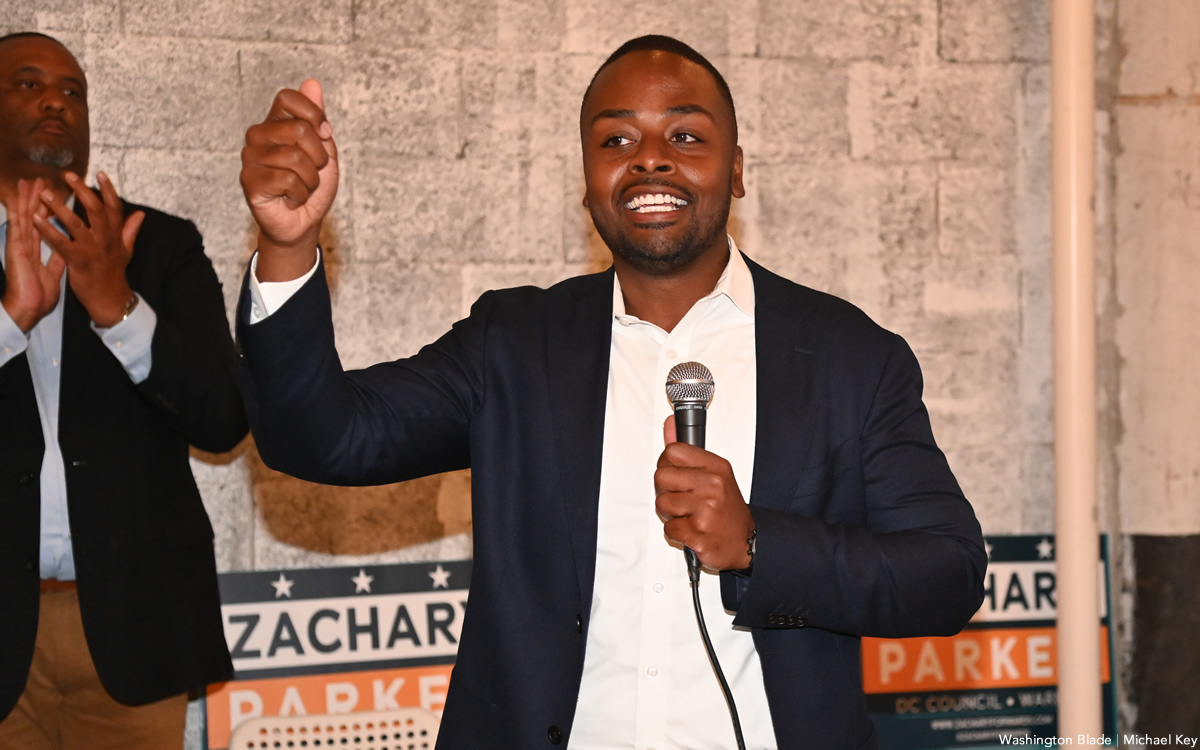
LGBTQ activists said among the highlights of the 2022 D.C. election was gay D.C. school board member Zachary Parker, who won election to the Ward 5 D.C. Council seat, becoming the first out LGBTQ person to serve on the Council since 2015.
Gay former D.C. police officer Salah Czapary lost his race for the Ward 1 D.C. Council seat, and two gay Libertarian Party candidates lost their races for the D.C. congressional delegate seat and the Ward 3 Council seat.
In the June Democratic primary, D.C. Mayor Muriel Bowser and Council Chair Phil Mendelson won in hotly contested races. In a development that surprised some political observers, the city’s largest LGBTQ political group, Capital Stonewall Democrats, endorsed Bowser and Mendelson’s lead opponents.
LGBTQ supporters of Bowser and Mendelson claim the large majority LGBTQ residents voted for Bowser and Mendelson, who have strong records of support on LGBTQ issues. Like all D.C. elections over the past 20 years or longer, virtually all candidates running in 2022 expressed support for LGBTQ rights.
#1 Casa Ruby shuts down
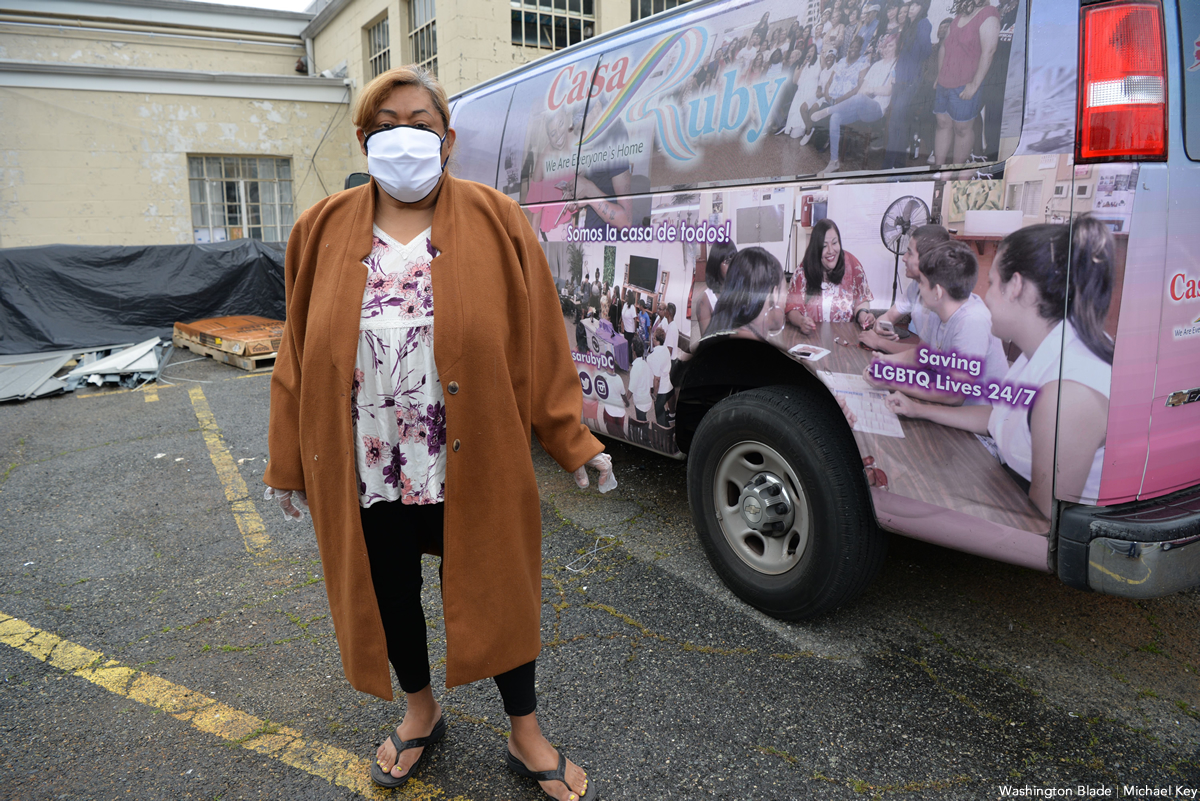
Casa Ruby, D.C.’s once highly regarded LGBTQ community services center, closed its operations in July due to a financial crisis brought about by the loss of hundreds of thousands of dollars in city funding and alleged mismanagement.
On July 29, shortly after the shutdown, the Office of the D.C. Attorney General filed a civil complaint against Casa Ruby and its founder and former executive director Ruby Corado, alleging that Casa Ruby and Corado had violated the city’s Nonprofit Corporations Act for the past several years.
The complaint said improper actions by Corado, including the unaccounted-for expenditure of city funds and a gross failure by the Casa Ruby Board of Directors to provide oversight, was the cause of the financial crisis. The AG’s office on Nov. 28 filed an amended complaint in D.C. Superior Court with new allegations, including claims that Corado withdrew more than $400,000 of Casa Ruby’s funds for unauthorized use in El Salvador.
Corado has denied any improper or illegal financial practices and blamed the D.C. government for Casa Ruby’s collapse. In an interview with the Blade in El Salvador, where she has lived most of the time for the past two years, Corado said the allegations against her, especially those made by the D.C. Attorney General, amount to “persecution.”

In an official statement released at the reveal event Capital Pride Alliance described its just announced 2026 Pride theme of “Exist, Resist, Have the Audacity” as a “bold declaration affirming the presence, resilience, and courage of LGBTQ+ people around the world.”
The statement adds, “Grounded in the undeniable truth that our existence is not up for debate, this year’s theme calls on the community to live loudly and proudly, stand firm against injustice and erasure, and embody the collective strength that has always defined the LGBTQ+ community.”
In a reference to the impact of the hostile political climate, the statement says, “In a time when LGBTQ+ rights and history continue to face challenges, especially in our Nation’s Capital, where policy and public discourse shape the future of our country, together, we must ensure that our voices are visible, heard, and unapologetically centered.”
The statement also quotes Capital Pride Alliance CEO and President Ryan Bos’s message at the Reveal event: “This year’s theme is both a declaration and a demand,” Bos said. “Exist, Resist, Have Audacity! reflects the resilience of our community and our responsibility to protect the progress we’ve made. As we look toward our nation’s 250th anniversary, we affirm that LGBTQ+ people have always been and always will be part of the United States’s history, and we will continue shaping its future with strength and resolve,” he concluded.
District of Columbia
Capital Pride board member resigns, alleges failure to address ‘sexual misconduct’
In startling letter, Taylor Chandler says board’s inaction protected ‘sexual predator’

Taylor Lianne Chandler, a member of the Capital Pride Alliance Board of Directors since 2019 who most recently served as the board’s secretary, submitted a letter of resignation on Feb. 24 that alleges the board has failed to address instances of “sexual misconduct” within the Capital Pride organization.
The Washington Blade received a copy of Chandler’s resignation letter one day after she submitted it from an anonymous source. Chandler, who identifies as transgender and intersex, said in an interview that she did not send the letter to the Blade, but she suspected someone associated with Capital Pride, which organizes D.C.’s annual LGBTQ Pride events, “wants it out in the open.”
“It is with a heavy heart, but with absolute clarity, that I submit my resignation from the Capital Pride Alliance Board of Directors effective immediately,” Chandler states in her letter. “I have devoted nearly ten years of my life to this organization,” she wrote, pointing to her initial involvement as a volunteer and later as a producer of events as chair of the organization’s Transgender, Gender Non-Conforming, and Intersex Committee.
“Capital Pride once meant something profound to me – a space of safety, visibility, and community for people who have often been denied all three,” her letter continues. “That is no longer the organization I am part of today.”
“I, along with other board members, brought forward credible concerns regarding sexual misconduct – a pattern of behavior spanning years – to the attention of this board,” Chandler states in the letter. “What followed was not accountability. What followed was retaliation. Rather than addressing the substance of what was reported, officers and fellow board members chose to chastise those of us who came forward.”
The letter adds, “This board has made its priorities clear through its actions: protecting a sexual predator matters more than protecting the people who had the courage to come forward. … I have been targeted, bullied, and made to feel like an outsider for doing what any person of integrity would do – telling the truth.”
In response to a request from the Blade for comment, Anna Jinkerson, who serves as chair of the Capital Pride board, sent the Blade a statement praising Taylor Chandler’s efforts as a Capital Pride volunteer and board member but did not specifically address the issue of alleged sexual misconduct.
“We’re also aware that her resignation letter has been shared with the media and has listed concerns,” Jinkerson said in her statement. “When concerns are brought to CPA, we act quickly and appropriately to address them,” she said.
“As we continue to grow our organization, we’re proactively strengthening the policies and procedures that shape our systems, our infrastructure, and the support we provide to our team and partners,” Jinkerson said in her statement. “We’re doing this because the community’s experience with CPA must always be safe, affirming, empowering, and inclusive,” she added.
In an interview with the Blade, Chandler said she was not the target of the alleged sexual harassment.
She said a Capital Pride investigation identified one individual implicated in a “pattern” of sexual harassment related behavior over a period of time. But she said she was bound by a Non-Disclosure Agreement (NDA) that applies to all board members and she cannot disclose the name of the person implicated in alleged sexual misconduct or those who came forward to complain about it.
“It was one individual, but there was a pattern and a history,” Chandler said, noting that was the extent of what she can disclose.
“And I’ll say this,” she added. “In my opinion, with gay culture sometimes the touchy feely-ness that goes on seems to be like just part of the culture, not necessarily the same as a sexual assault or whatever. But at the same time, if someone does not want those advances and they’re saying no and trying to push you away and trying to avoid you, then it makes it that way regardless of the culture.”
When asked about when the allegations of sexual harassment first surfaced, Chandler said, “In the past year is when the allegation came forward from one individual. But in the course of this all happening, other individuals came forward and talked about instances – several which showed a pattern.”
Chandler’s resignation comes about five months after Capital Pride Alliance announced in a statement released in October 2025 that its then board president, Ashley Smith, resigned from his position on Oct. 18 after Capital Pride became aware of a “claim” regarding Smith. The statement said the group retained an independent firm to investigate the matter, but it released no further details since that time. Smith has declined to comment on the matter.
When asked by the Blade if the Smith resignation could be linked in some way to allegations of sexual misconduct, Chandler said, “I can’t make a comment one way or the other on that.”
Chandler’s resignation and allegations come after Capital Pride Alliance has been credited with playing the lead role in organizing the World Pride celebration hosted by D.C. in which dozens of LGBTQ-related Pride events were held from May through June of 2025.
The letter of resignation also came just days before Capital Pride Alliance’s annual “Reveal” event scheduled for Feb. 26 at the Hamilton Hotel in which the theme for D.C.’s June 2026 LGBTQ Pride events was to be announced along with other Pride plans.
District of Columbia
Capital Stonewall Democrats elect new leaders
LGBTQ political group set to celebrate 50th anniversary

Longtime Democratic Party activists Stevie McCarty and Brad Howard won election last week as president and vice president for administration for the Capital Stonewall Democrats, D.C.’s largest local LGBTQ political organization.
In a Feb. 24 announcement, the group said McCarty and Howard, both of whom are elected DC Advisory Neighborhood Commissioners, ran in a special Capital Stonewall Democrats election to fill the two leadership positions that became vacant when the officers they replaced resigned.
Outgoing President Howard Garrett, who McCarty has replaced, told the Washington Blade he resigned after taking on a new position as chair of the city’s Ward 1 Democratic Committee. The Capital Stonewall Democrats announcement didn’t say who Howard replaced as vice president for administration.
The group’s website shows its other officers include Elizabeth Mitchell as Vice President for Legislative and Political Affairs, and Monica Nemeth as Treasurer. The officer position of secretary is vacant, the website shows.
“As we look toward 2026, the stakes for D.C. and for LGBTQ+ communities have never been clearer,” the group’s statement announcing McCarty and Howard’s election says. “Our 50th anniversary celebration on March 20 and the launch of our D.C. LGBTQ+ Voter’s Guide mark the beginning of a major year for endorsements, organizing, and coalition building,” the statement says.
McCarty said among the organization’s major endeavors will be holding virtual endorsement forums where candidates running for D.C. mayor and the Council will appear and seek the group’s endorsement.
Founded in 1976 as the Gertrude Stein Democratic Club, the organization’s members voted in 2021 to change its name to Capital Stonewall Democrats. McCarty said the 50th anniversary celebration on March 20, in which D.C. Mayor Muriel Bowser and members of the D.C. Council are expected to attend, will be held at the PEPCO Gallery meeting center at 702 8th St., N.W.
-

 Mexico5 days ago
Mexico5 days agoUS Embassy in Mexico issues shelter in place order for Puerto Vallarta
-

 Netherlands4 days ago
Netherlands4 days agoRob Jetten becomes first gay Dutch prime minister
-

 Sports4 days ago
Sports4 days agoMore than a dozen LGBTQ athletes medal at Olympics
-

 Books3 days ago
Books3 days agoNew book profiles LGBTQ Ukrainians, documents war experiences

















